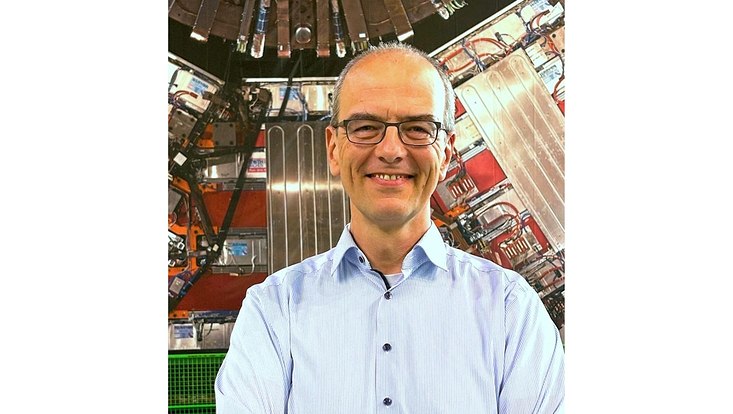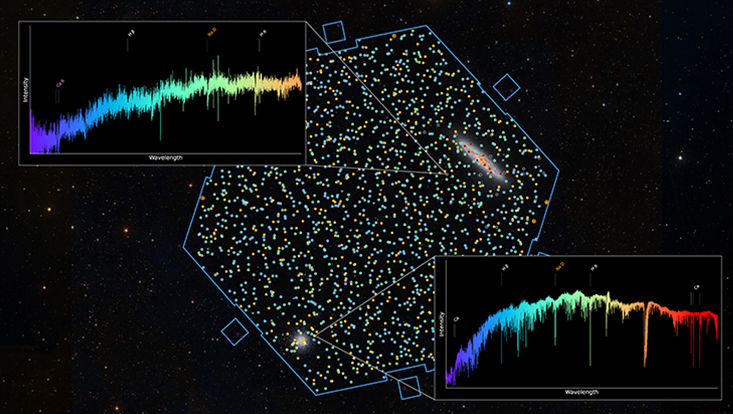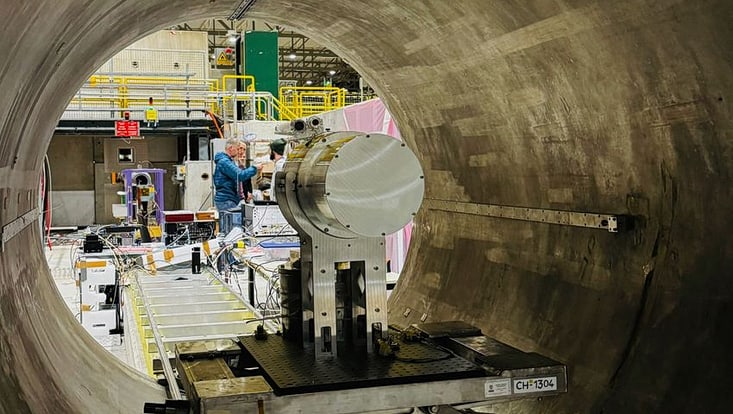Quantum Universe scientists take up central role in LHC experiments
23 April 2024

Photo: DESY/Freya Blekman
No physics analysis at the Large Hadron Collider LHC without Quantum Universe involvement: from autumn 2024, the role of physics coordinator of both large experiments at the LHC at CERN in Geneva will be held by Quantum Universe scientists. The board of the international CMS collaboration confirmed that from September 2024 until August 2026, DESY scientist Andreas Meyer will be CMS Physics Coordinator.
CMS is is one of the two gigantic multi-purpose detectors at the Large Hadron Collider that discovered the Higgs boson in 2012. The CMS collaboration consists of more than 5000 people from around the world, including some 400 scientists in Germany and 45 at Universität Hamburg as well as 75 at DESY. Andreas Meyer, who is a key researcher of the Cluster of Excellence Quantum Universe, is one of them. He joined DESY in 2005 and has worked on two other particle physics experiments, H1 and Babar, before joining CMS in 2007. Within the CMS collaboration, Meyer is a specialist for top quark physics and the organisation of the performance, calibrations, and datasets necessary to achieve high-quality physics results.
As the CMS Physics Coordinator, Andreas Meyer will be managing the physics programme of the international CMS collaboration. The physics coordinators are the two principal scientists tasked with comprehensively organising the entire scientific output generated by the CMS experiment. The main mandate of physics coordination is to guide the research pursued by thousands of CMS physicists as they engage in measurements or explore novel realms of physics. Meyer will be responsible for the organisation and quality of the physics results coming out of the CMS experiment, including approximately 100 papers per year.
“I am really excited to take responsibility at this point in time,” says Meyer. “Among the major goals during my term will be the publication of first results from the complete LHC Run 3 data and the preparation of Run 4. These will each constitute leaps in physics reach and precision.”
The next round of data-taking at the LHC, called Run 4, is scheduled to start in 2029, and the LHC groups at DESY and Universität Hamburg are contributing major components to the upgrade of the detectors. The particle physicists in Hamburg are in a unique position, as in the coming two years both large LHC collaborations’ physics coordination groups are led by physicists from Quantum Universe. Earlier this spring, Kerstin Tackmann, DESY Lead Scientist, professor at Universität Hamburg and Quantum Universe principal investigator, was selected in the identical role of physics coordinator of the ATLAS collaboration (see news article). The ATLAS and CMS collaborations together make up the largest fraction of particle physicists with almost 10 000 scientists, engineers and students all over the world involved. DESY and Quantum Universe have large stakes in both and are one of the world’s leading physics groups.
“The fact that DESY provides two highly experienced and competent physicists as physics coordinators to the two largest LHC experiments, ATLAS and CMS, illustrates our leadership in the field,” says Beate Heinemann, Director in charge of particle physics at DESY. “They will be busy and carry a large responsibility, but will also have fun being at the forefront of the many exciting LHC results we are hoping for in the coming years.”

